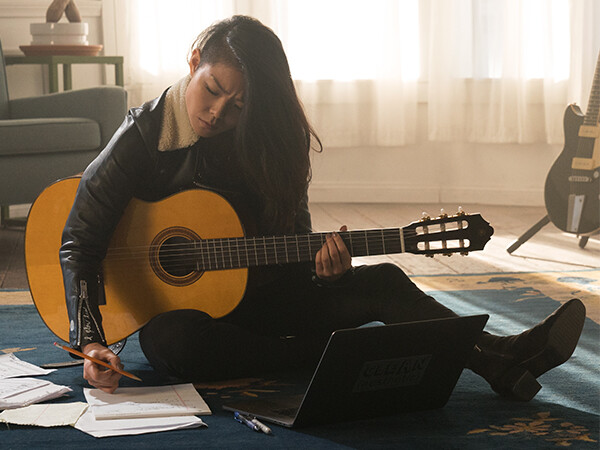Writing for TV and Film
The process is anything but free-form.
If you’re a songwriter or composer, at some point you may be asked to write for a TV show or a film. On the surface, they might seem like two sides to the same coin, but actually the processes are quite different.
Writing on assignment uses a different set of brain muscles than those we use for creating music boundary-free. I enjoy both challenges but I’m all too aware that the former calls for switching gears and listening to instructions and guidelines, rather than free-falling into creative nirvana.
Here’s how it typically goes: A music supervisor (a person who combines music and visual media) gives the composer a “brief.” This important document describes the scene for which your music will partner and also tells you a bit about the characters involved and what their motivations are.
Sometimes the scene will have been filmed already. If footage is available to you, be sure to watch it! This is like gold. Being able to actually see the moving picture come to life is always a more tangible reference than a description of it.
Fortunately for me, footage was available when I was asked to compose an opening song for the 1999 film Music From The Heart. The character on camera (played by Meryl Streep) had recently been left by her husband. She was flipping through the pages of a photo album (remember those?), missing him terribly and trying to move on. I felt her. My pen went into auto-pilot and scribbled down a title: “Turn the Page.”
Aaliyah recorded the finished piece (co-written with Guy Roche) and when I saw it put to picture I felt satisfied I had done my job — that the song captured the spirit of the emotional essence and enhanced the scene.
But footage often isn’t an option, in which case the brief usually includes bullet points or relevant keywords the music supervisor or director wants to hear in the finished song, along with “reference” material — examples of songs that could work in the scene … if the filmmaker wished to use an existing copyright.
I take this list seriously. Each song may have been referenced for its own reason. One might be lyrically on the money. Another more musically fitting.
I’ll playlist these referenced songs and consider them for some time before I actually sit down to write. This helps me connect with tone and steer my unconscious creative flow.
Then I’ll go to the piano and actually play one of those songs to establish the mood. Loosen me up, so to speak. At which point I’ll undoubtedly hear a voice in my head that says:
How on earth will I be able to come up with something better? It seems like this song was made for the scene. Plus, it’s a proven hit. Loved by millions already.
It’s OK. I let that voice have at it and then I proceed anyway! From scratch. (Such a demeaning yet necessary place to start.)
Next, I begin implementing my ideas with the chord progression of one of the referenced songs. This at least gets me in the “neighborhood” of the vibe. Now I’m in transition.
Ideally, my song will morph into its own original creation, but the references give me a template, a place from which to jump off. To me, whatever gets you going — whatever inspires — is fair game.
It’s worth pointing out that not all assignments call for a song that’s directly derived from the on-screen narrative. Sometimes a music supervisor or director is looking for something more vague — a composition with a musical texture that’s evocative of the spirit of the scene, but not at all lyrically congruous. Knowing in advance which approach they’re looking for will save you a lot of trouble.
As I get close to finishing the song, I’ve found that it’s wise to recheck the brief and ensure that I’ve covered as best I can all the elements that were suggested be incorporated. That said, just because I can check off the keywords doesn’t necessarily mean I’ve done my job. It’s not enough to hope that the song I’ve written makes the director cry. It has to make me cry too. Or give me chills, or make me laugh out loud. Aside from the elements, the song must still be effective!
I haven’t written to a brief in a long time, but it just so happens that I was tapped to do so recently, and it just so happened that I had some time on my hands. So I sat at my piano and revisited the exact process described in this posting. I heard those same voices in my head (they never go away!) — the ones that ask if I can beat the proven hit. I let them have at it, and then I proceeded.
And once again, even though I believed I captured the character of the referenced songs, checked off 90% of the keywords and felt genuinely uplifted by the final result (as was the goal), when I played back the demo one last time just before emailing it to the music supervisor, there was still that last thought right after I pressed send:
“I hope they like it!”















